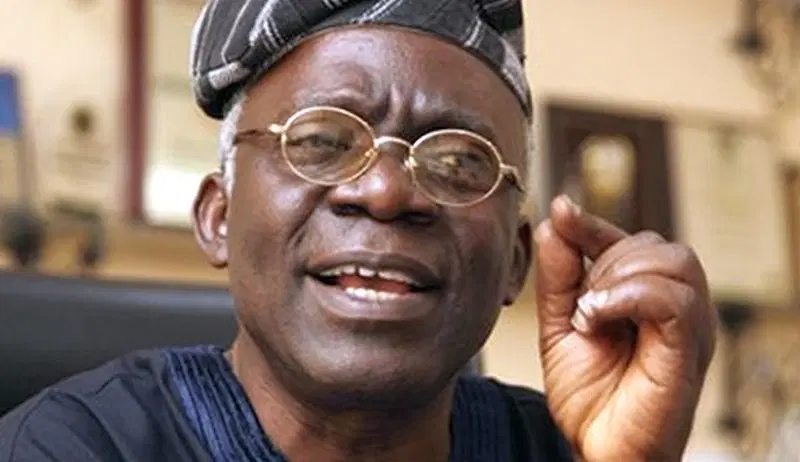Human rights lawyer and Senior Advocate of Nigeria, Femi Falana, has delivered a sharp critique of President Bola Tinubu’s economic direction, warning that current policies have entrenched hardship for ordinary Nigerians while enriching a privileged few. Speaking on Politics Today, a Channels Television programme aired on Monday, Falana said the administration's neoliberal approach has alienated the masses and deepened inequality.
"For the Rich,
It’s Rosy, But the Masses Are Struggling"
According to Falana,
while top government officials and political elites celebrate Tinubu’s second
year in office, average Nigerians are enduring worsening living conditions.
“For members of the
government, it’s been very rosy. One of them was singing a week ago that things
are getting better. Of course, for the rich, the bourgeoisie, things are
getting better. But for the masses, things are getting tougher.”
Falana acknowledged
President Tinubu’s public appeals for patience, but insisted that rhetoric
cannot replace practical policies rooted in local realities.
“The government
itself realises that there is a crisis in town, that people are hungry, that
many are about to withdraw their children from school because of the rigid
implementation of neoliberal policies dictated or endorsed by the IMF and World
Bank.”
Austerity and
Devaluation: Falana Blames External Influence
A major target of
Falana’s criticism was the administration’s reliance on economic advice from
international financial institutions such as the International Monetary Fund
(IMF) and the World Bank. He specifically denounced the devaluation of the
naira, warning that it has triggered inflation and exacerbated the
cost-of-living crisis.
“If you devalue the
currency of a country that is import-oriented, you are going to have an
astronomical rise in the price of goods, and that is what has happened.”
He urged the
federal government to abandon externally-driven economic prescriptions and
instead “have confidence in Nigeria” by crafting homegrown solutions aimed at
serving the people.
Citizens Must Hold
Governments Accountable
Beyond criticizing
federal policy, Falana also issued a civic challenge to Nigerians: take
ownership of budget monitoring. He stressed that meaningful change requires
citizens to scrutinize public budgets, demand transparency, and track project
implementation from the National Assembly down to local governments.
“Nigerians must
take these budgets, identify the items one by one, and ensure we follow up and
monitor their execution.”
A Call for Policy
Rethink
Falana’s remarks
come amid ongoing frustration among citizens over soaring food prices, a
volatile exchange rate, fuel subsidy removal, and shrinking purchasing power.
His warning reflects a growing consensus among many economic observers and
civic advocates that Tinubu’s administration must pivot from austerity and
embrace equity-driven reforms.
As the government
looks to mark two years in power with bold claims of reform, voices like
Falana’s are pushing back—arguing that without people-focused policies, the
promise of long-term prosperity may remain out of reach for most Nigerians.





0 Comments